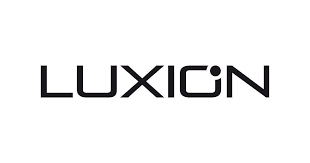Society’s Evolving Thoughts: A Reflection on Changing Values and Beliefs
The way societies think and function has always been influenced by cultural norms, economic conditions, technological advancements, and global events. Over the past few decades, our collective consciousness has evolved, reshaping how we perceive issues such as equality, mental health, environmental responsibility, and the role of technology in our lives. This article explores some of the most significant shifts in societal thinking and how they impact our everyday experiences.
1. The Growing Emphasis on Mental Health
Mental health awareness has seen a dramatic shift in recent years. Historically, mental health issues were stigmatized, often swept under the rug or viewed as a sign of weakness. Today, however, conversations around mental well-being have become more open and widespread. Celebrities, influencers, and even governments are encouraging people to prioritize their mental health, and initiatives like workplace wellness programs are on the rise.
Key Changes in Thinking:
- Acceptance and De-stigmatization: Society is increasingly recognizing that mental health is just as important as physical health. Campaigns and educational efforts are shedding light on common conditions such as anxiety, depression, and PTSD.
- Access to Mental Health Resources: With greater awareness comes a demand for improved access to mental health services. More people are advocating for affordable therapy, counseling in schools, and mental health days at work.
This shift highlights the importance of self-care and empathy, making society more compassionate and understanding of mental health struggles.
2. Equality and Social Justice: A Movement for Change
Issues of equality, whether related to race, gender, or sexual orientation, have sparked global movements and widespread activism. The push for social justice is driven by a desire to create an inclusive world where everyone is treated fairly and has equal opportunities.
a. Racial Equality Movements like Black Lives Matter have played a significant role in bringing attention to racial injustices. Protests, social media campaigns, and policy changes are ongoing efforts to dismantle systemic racism and promote racial equity.
b. Gender Equality and Women’s Rights The fight for gender equality continues to make strides. Issues such as the gender pay gap, reproductive rights, and workplace discrimination are being challenged more than ever. Women’s movements are also working to combat gender-based violence and increase female representation in leadership roles.
c. LGBTQ+ Rights Acceptance of LGBTQ+ individuals has improved in many parts of the world. Same-sex marriage is legal in numerous countries, and Pride events celebrate the community’s identity and rights. However, challenges remain, and the fight for complete acceptance and equal protection under the law persists.
The conversation around equality and social justice has shifted from tolerance to active acceptance and allyship, signaling a more inclusive future.
3. The Environmental Consciousness Revolution
Climate change and environmental degradation are some of the most pressing issues of our time. The global awareness of our environmental impact has led to a significant change in how societies think about sustainability and ecological responsibility.
Key Developments in Environmental Thinking:
- Sustainability in Daily Life: From reusable shopping bags to electric vehicles, individuals are adopting sustainable practices to minimize their carbon footprint. Younger generations, in particular, are committed to making eco-friendly choices.
- Corporate Responsibility: Businesses are under increasing pressure to prioritize environmental, social, and governance (ESG) factors. Many companies are making commitments to reduce waste, switch to renewable energy, and support conservation efforts.
- Climate Activism: Figures like Greta Thunberg and organizations like Extinction Rebellion have inspired millions to demand urgent action from world leaders. Climate strikes, documentaries, and social media campaigns keep environmental issues at the forefront.
Society’s changing views on the environment emphasize the urgency of protecting our planet for future generations, with sustainability becoming a way of life rather than a trend.
4. Technology: Friend or Foe?
The rapid advancement of technology has transformed society, sparking mixed feelings about its impact. On one hand, technology has connected people globally, revolutionized healthcare, and made life more convenient. On the other, concerns about privacy, mental health, and the ethical use of artificial intelligence (AI) are growing.
Positive Shifts:
- Digital Connectivity: The internet has allowed for greater global collaboration, breaking down geographical barriers and making the world more interconnected.
- Health and Innovation: Technological advancements in medicine, such as telehealth and personalized treatments, have saved countless lives. Innovations like 3D printing and AI diagnostics are changing the face of healthcare.
Concerns and Challenges:
- Privacy and Data Security: As our lives become more digitized, concerns about data privacy are on the rise. The debate over how much data tech companies should be allowed to collect and the ethical implications of AI surveillance is intensifying.
- Impact on Mental Health: Social media, while useful for connection, has also been linked to issues like anxiety, depression, and cyberbullying. Society is increasingly debating how to balance technology’s benefits with its drawbacks.
The way society views technology is nuanced, with a focus on finding ways to harness its potential while addressing its risks.
5. Changing Family Structures and Roles
The definition of family and traditional gender roles have evolved significantly. Today, there is a broader understanding of what a family can look like, reflecting changing attitudes toward marriage, parenting, and gender identity.
Modern Family Dynamics:
- Acceptance of Diverse Families: Families come in all shapes and sizes, from single-parent households to blended families and same-sex partnerships. Society is becoming more accepting of these diverse structures.
- Redefining Gender Roles: The stereotype of the male breadwinner and the female homemaker is being challenged. More men are taking on caregiving roles, and women are increasingly excelling in leadership positions. The push for shared parental leave is also reshaping family dynamics.
- Parenting Styles: Parents are becoming more mindful of raising emotionally intelligent children. Discussions about gentle parenting, open communication, and gender-neutral upbringing are reshaping parenting philosophies.
The evolving concept of family reflects a society that values flexibility, equality, and emotional well-being.
6. A Shift Toward Mindfulness and Well-Being
In an era of constant connectivity and stress, there has been a significant focus on slowing down and prioritizing well-being. Practices like mindfulness, meditation, and self-care have become mainstream, with people looking to lead more balanced and fulfilling lives.
Mindfulness in Everyday Life:
- The Popularity of Meditation: Apps like Headspace and Calm have made meditation accessible to the masses. People are recognizing the benefits of mindfulness for reducing stress, increasing focus, and promoting overall mental health.
- Work-Life Balance: Remote work and flexible schedules are reshaping how people view the traditional workweek. There is a greater emphasis on work-life balance, with employees seeking jobs that align with their well-being.
- Minimalism and Intentional Living: The minimalist movement has inspired many to declutter their lives and focus on what truly matters. Intentional living encourages people to make choices that align with their values, whether through sustainable fashion or thoughtful consumption.
This movement toward mindfulness and well-being represents a desire for more purposeful and contented living.
Conclusion
Society’s thoughts are constantly evolving, influenced by new knowledge, global movements, and shifting priorities. While the world continues to face challenges, there is also a growing awareness of the importance of compassion, sustainability, and inclusion. These changing values shape the way we interact with one another and the planet, paving the way for a more equitable and thoughtful future. Understanding and adapting to these shifts can help us create a society that values progress, empathy, and collective well being.





Post Comment